Hello all,
Here are a few pictures from the past month of typical things that you might see in the villages around Malawi, or while in transport. Let me know if you have any questions!
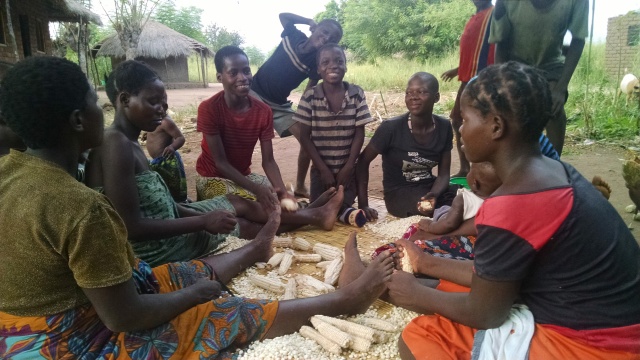
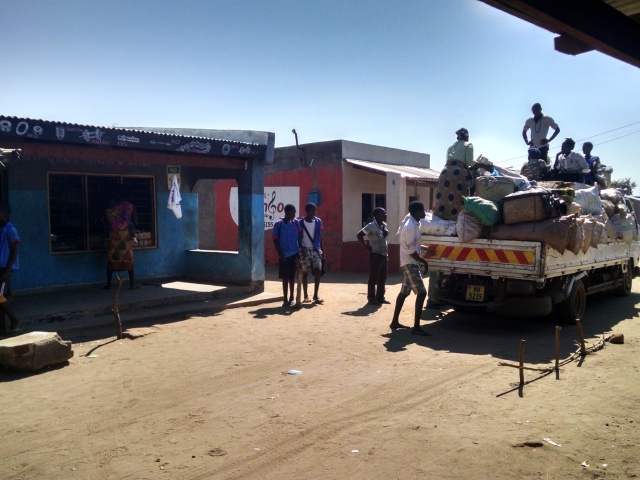
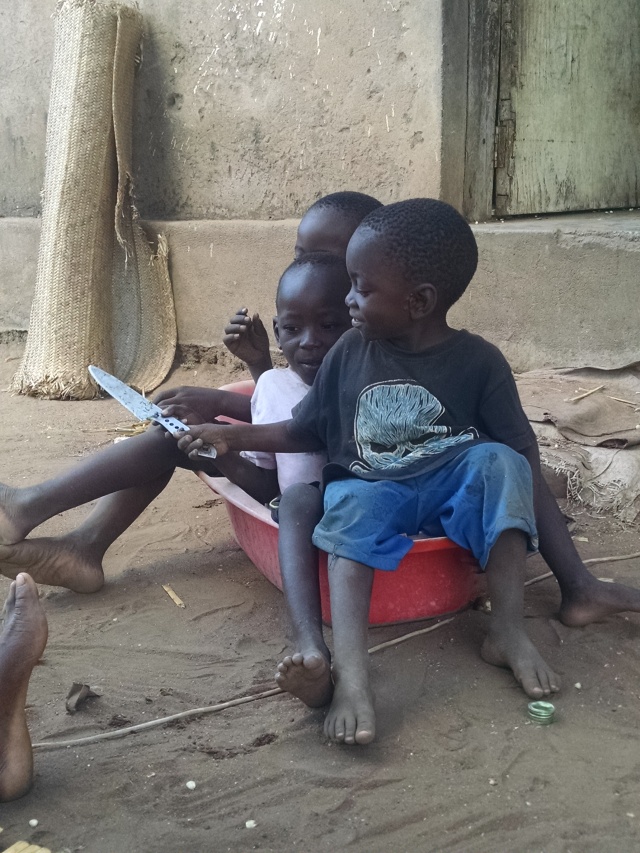
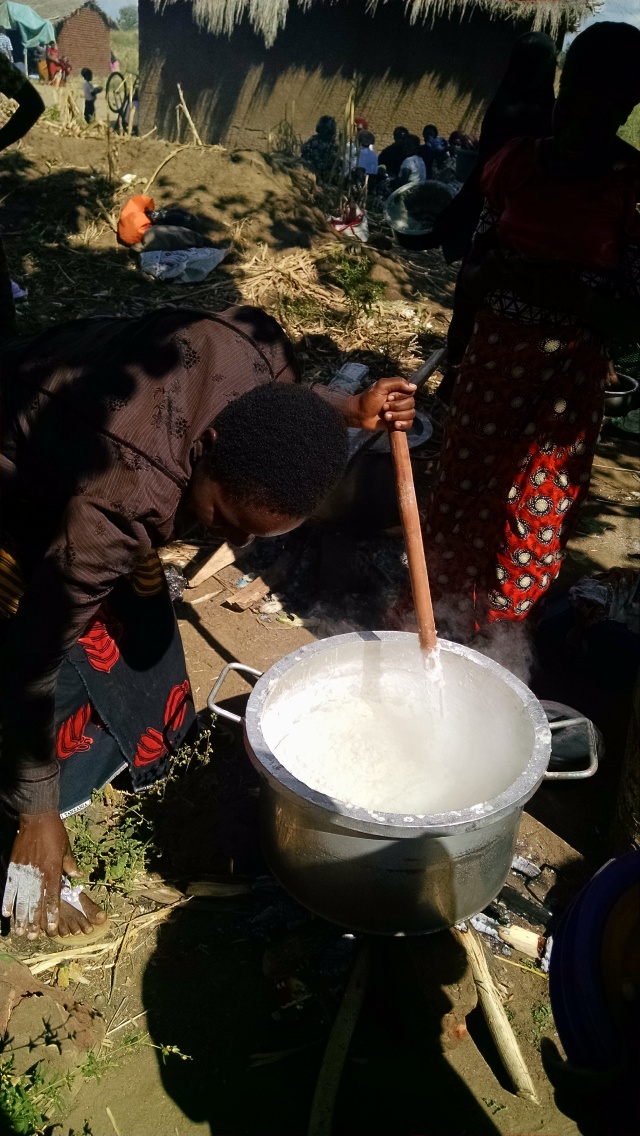
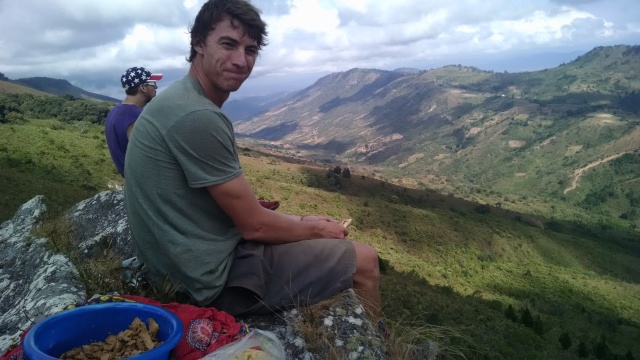
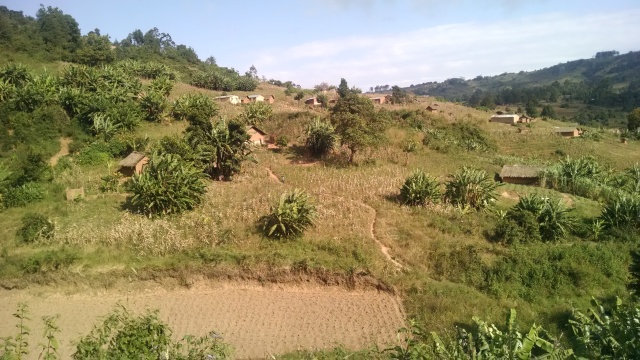
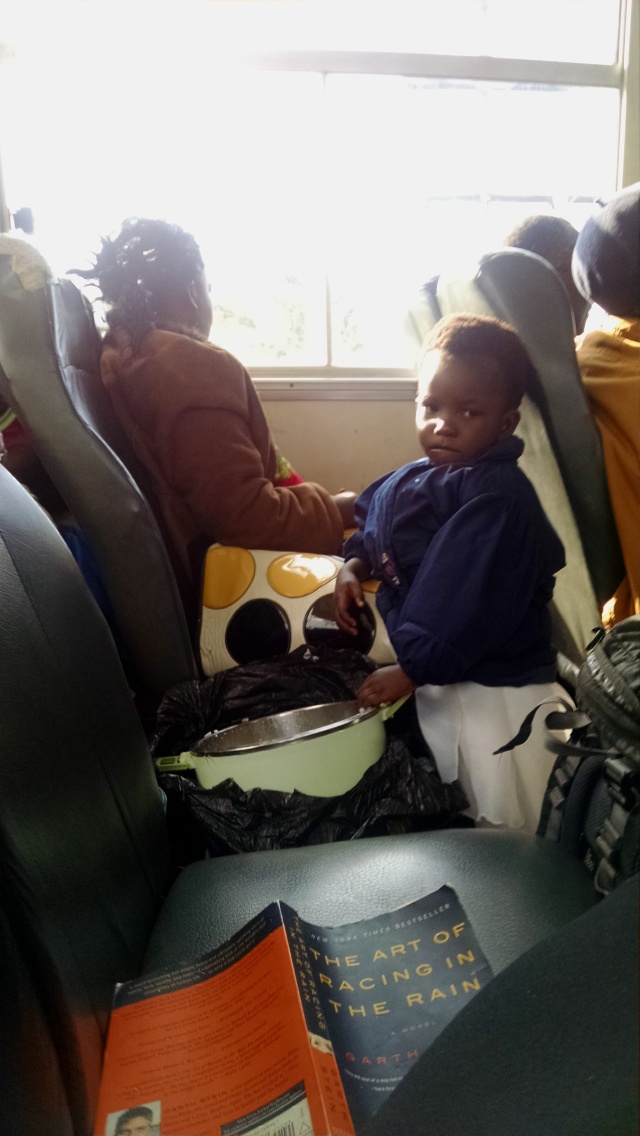
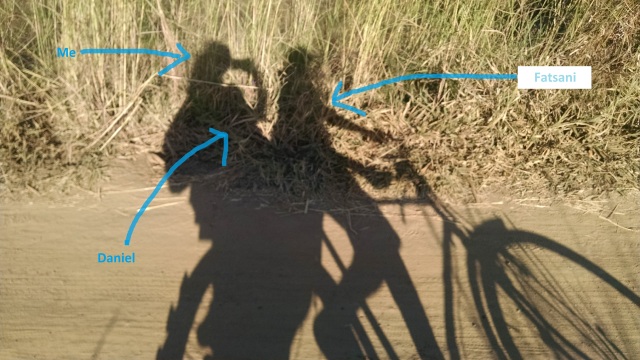
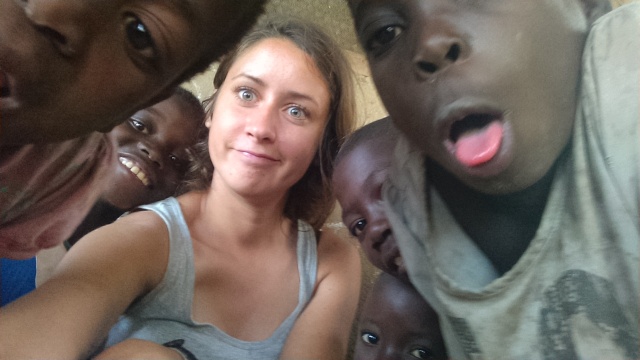

Hello all,
Here are a few pictures from the past month of typical things that you might see in the villages around Malawi, or while in transport. Let me know if you have any questions!









Over 14 months ago, I posted a packing list of everything I brought to Malawi. Today, I’d like to revisit that list in order to provide a better idea of what is needed for future PCVs. In general, I think I did a fairly good job of packing (especially in comparison to a friend that brought over 30 pairs of underwear!) I love having touches of home such as my New England calendar, pressed autumn leaves, nice pens, etc. In addition, I would definitely recommend a kindle, laptop and speakers. Check the revisions below for more info.
Clothing & Accessories
1 raincoat
3 long skirts
3 long-sleeve collared shirts (while you’re required to look “professional” in PST, trainees hardly wore collared shirts but you should bring at least one for Staging)
1 under armour hiking shirt (haven’t worn this due to my hot site but might have been useful if I were in a cooler site)
4 3 basic tanks
6 3 basic v-necks
3 sleep/workout tees
2 sleeveless collared shirts
3 blouses
1 blazer (completely ridiculous that I brought this and have never worn this)
5 4 pairs of leggings
1 pair of spanx
2 gaucho pants (should have brought more because they are hard to find here and the most comfortable thing to wear for biking around)
2 long dresses
2 1 “culturally inappropriate” dresses (I don’t really go out here, but others do. Up to you)
1 hoodie
1 fleece
3 sports bras
3 bandeaus
7 pairs of durable sport undies (good idea, bring some strong underwear that will sustain harsh washing)
4 pairs of favorite undies (nice to feel attractive every once and awhile)
8 pairs of socks
1 pair of thick hiking socks
1 one-piece bathing suit (wearing a two-piece while swimming is acceptable)
2 pairs of sunglasses
1 red sox cap and 1 Nantucket cap
5 headbands
1 money belt
Footwear
1 pair of hiking boots (never used them and they took up so much space)
1 pair of crocs (don’t wear cause my feet get too sweaty in them)
1 pair of flats
1 pair of tevas
1 pair of Nike flip-flops
+ I would recommend packing an extra pair of comfortable, durable flip flops
Hobby stuff
1 harmonica
1 watercolor set w/ paintbrushes
1 set of charcoal pencils
1 set of colored pencils
1 mechanical pencil & lead
8 pens
5 drawing pens
1 game of Boggle
1 game of “Would Your Rather”
2 stationary sets with envelopes
1 guitar w/beginner’s book (great for site integration period and fun to learn something new but it reduced my possible luggage by 1 bag)
1 Snapfish book of college pictures
1 NatGeo magazine (kids love looking at NatGeo!)
1 notebook
1 journal
1 drawing pad
1 pack of crayons
3 sharpies
1 3 fat markers (good markers for writing on flipcharts are hard to find here!)
Household things/random
1 roll of tape
1 poster
2 world maps
1 NH map
1 calendar of New England (very nice to show host family, have reminder of home)
1 painting for wall decor
2 tapestries for wall decor
1 string of pennants for wall decor
1 pack of clothespins, safety pins, push pins
1 pair of scissors
1 pi phi arrow
1 can opener (never used since canned foods are quite expensive here)
10 packs of seeds (tomatoes and onions are everywhere so not necessary)
+ I would also add tacks or more push pins for hanging things at your new house
Food
2 gatorade flavoring squirters (highly recommended, bring a lot!)
1 pack of peanut m&m’s
1lb of trail mix
2lbs of raisins
1 pint of homemade NH syrup!
Health
110 probiotic capsules
1 pack of stool softeners
1 pack of flossers
3 months of feminine products
Rugged stuff
1 survival strap bracelet
1 bandana
1 super absorbent towel
1 utility knife
1 roll of duct tape
1 leatherman
1 whistle and carabiner
1 bungee cord
1 compass
1 Go Girl
2 expandable water bottles
1 tent
1 sleeping bag
$800 cash (haven’t used any of this, but I think it will be helpful for buying visas in other countries)
Electronics & related accessories
2 Luci lights
1 bug light
1 rechargeable headlamp (highly recommended)
3 pairs of cheap earbuds
8 extra earbud covers
1 battery powered alarm clock (good to have so you can turn your phone off at night to save battery)
1 watch
1 electronics cleaning cloth
1 pack screen protectors
1 Droid Maxx & Otterbox case
1 old iphone 4s as a backup
1 little Netbook (nice to have something simple and compact that I wasn’t too worried about)
1 kindle (highly recommended)
1 Canon Rebel t3i with lenses, camera bag, SD cards, accessories
1 Rockout Rechargeable speaker (highly recommended)
1 Goal Zero Guide 10 Solar Kit
1 SanDisk Clip Sport mp3 (highly recommended, cheap and durable)
1 external hard drive (highly recommended, you’ll share tons of media with friends)
Toiletries
1 bottle of my favorite lotion (a nice treat and touch of home)
3 month supply of shampoo & conditioner
1 bottle dry shampoo
1 bottle face wash
1 container of Tums
2 little bottles of hand sanitizer
1 bottle of moisturizer
8 1 months supply of BC (PC supplies this free although they didn’t have my brand)
1 mini mirror
1 pack of hair elastics
1 pair of nail clippers
2 sticks of deodorant
4 disposable razors
1 reusable razor and extra blade
1 stick of lipstick
1 mirror
When I accepted my invitation to join the Peace Corps, I scoured the internet for any and all PCV blogs. I wanted to find out exactly what the daily life of a volunteer was like and what their projects entailed. Today, in order to pay it forward and to address that later part for future volunteers, I’ve written a detailed account of one of my most recent projects. Sorry for non-future PCV readers, as all of the particulars are probably a bore! Here goes:
Phase 1: Brainstorming & Grant Writing
As an avid malaria (prevention) enthusiast and the Central Regional Coordinator of PC Malawi’s Malaria Team, I wanted to do something big for World Malaria Month in April. I also had been wanting to work with the secondary students for a long time and thought that the they would be the perfect channel for educating the wider community. I contemplated the idea of teaching malaria lessons at the school and then having the students create performances to showcase their newly acquired malarial knowledge to the community on World Malaria Day, April 25th. I figured that the project would allow them to practice their English listening skills, learn more about malaria in depth, and gain experience using performance arts as an educational skill. I presented my idea to the headteacher (principal), who was very receptive of the possible project. Together, we laid out the details of the program and tweaked some of my ideas. We decided that I would work with one biology and one English teacher to create and teach lessons on both malarial science and performance arts. Then, the students would assemble in small groups to create songs, poems and dramas. They would then perform their acts within the school, and the best teams would be selected to perform at a community-wide malaria rally to take place on April 25th.
Together, the headteacher and I wrote the grant. (This is the first grant I have written, as my other projects have not required funding). We were required to consider the sustainability of the project, the involvement from the community, its target population, various estimations of the number of beneficiaries per indicator, methods of monitoring and evaluation, etc. We also created a budget and made sure that 25% of the project would be funded by the community, as Peace Corps requires. The bulk of our budget was to hire a DJ who would bring music and speakers to the rally- a must for all Malawian events. In February, we submitted the grant for review to the Peace Corps office.
Phase 2: Planning makes… perfect?
After the office approved the grant, the teachers and I began planning our lessons. We first created a schedule outlining when each class would take place. Since many of the students travel up to 10km to school, we thought it would be best to have the lessons during the school hours instead of having students return home after the last bell to eat lunch and then bike all the way back. (Students do not eat at the school, but instead go home at 2:00). After creating a timetable, we administered a pre-test to gauge initial malarial knowledge and to later compare it to post-test scores as a method of evaluation. The biology teacher and I then used the results of the pre-test to create lessons plans. We met a few times to practice and create flipcharts with diagrams and drawings. The English teacher and I also met to create performance arts lessons, which we hoped would inspire creativity in the students- something that is severely lacking in Malawi. I also contacted a DJ (via my counterpart so I wouldn’t get charged an azungu price) and made sure he was available the 25th. During this time, it was really nice to work with the biology teacher, who I had only just met recently. It’s always refreshing to find a Malawian man who is respectful, caring and passionate about his work!
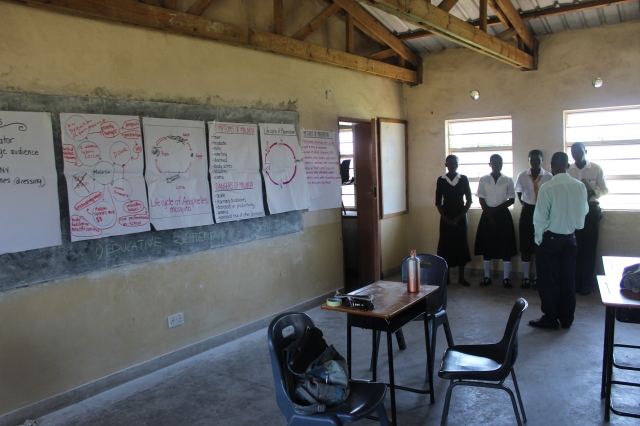
Phase 3: Lessons and rehearsals
The first week of April, we finally began! Of course, the way the project unfolded barely resembled our original plan. Implementation was incredibly frustrating and more than once, I assumed the entire project would be cancelled. The first day I went to give a lesson, it was pushed back an hour and a half. Not a big deal, I thought, this is Malawi. The second day, as I was in the middle of cooking at my house, I received a call from the headteacher telling me to come immediately to deliver the lesson earlier than expected. Again, not a huge deal but certainly annoying since I had confirmed yesterday that the lesson would be at 1:30 and not 12:00. I quickly left my half-cooked food and biked the 15 minutes to school.
The kids seemed to enjoy the lessons, but my English was clearly giving them trouble. For example, when I asked them to name the organism that transmits malaria, one student shouted out, “SLASHING GRASSES!” (A common misconception about how to prevent malaria). I’ve learned that Malawian classrooms have serious problems with students who simply memorize English buzzwords instead of understanding content. The biology teacher would translate a bit when he saw confused faces though, which was helpful.
Each day for the rest of the week, the time of the lesson was different from what we had meticulously planned. Every day I would arrive and be informed of the change, wondering why no one had called me earlier to inform me. Then, when I arrived on Friday, I discovered that all of the students had left.
“Yes, they leave early on Fridays,” the headteacher told me nonchalantly. Oh really, I thought, that may have been nice to know before I biked here and scheduled my whole day around the lesson. Especially since I confirmed the lesson with you yesterday!
“I must have forgotten,” he explained. Before exploding in frustration, I kindly rescheduled the meeting for Monday and quickly left. We had only a week and a half left until the rally (which the DJ, members of the health center, and various chiefs were planning on attending). Therefore, I hoped that the cancellation would not set the students back too much.
On Monday, as I was on my way to school, I got a call saying that the students couldn’t meet because they had their mock exams. The headteacher explained to me that all Form 2s and Form 4s (sophomores and seniors) would be busy all week taking their pre SAT-like exams. I was in complete disbelief. Why on Earth hadn’t he told me about this when we planned our schedule months ago!? Surely he knew that each and every year, the students prepare for their “SATs” during the month of April. Even if he didn’t know the exact date during our planning sessions, he could have at least warned me when he found out. The headteacher casually communicated that Forms 2 & 4 would just have to be excused from the program. While I was certainly very unhappy, I accepted these terms and decided it would be fine to work with just Form 1&3. Compounding my frustration was the additional fact that my boyfriend had come to help out with the project and both of the days he was planning to help with had been cancelled.
So with just Forms 1 & 3 we forged forward. On Tuesday, we had the last malaria lesson but only 26 students attended, instead of the 100 that should have been there. The lesson had been shifted to after school hours, so many students left to eat lunch. (I don’t blame them – it was 2:00 and some don’t eat breakfast!) I was angry that the lesson had been changed once again; it had been purposely planned around the students’ schedule. For those that did stay (bless their hearts), they were a bit distracted from the hunger. It was vital that they knew the information I was teaching that day because it was material for their performances, but I could tell they were starving. Again, I was disappointed in the scheduling but we continued.

The performance arts lessons ensued soon after. We talked about the elements of a good song and played two popular Malawian tunes about social issues. We also discussed how to make dramas more entertaining. I personally hate singing and acting, but I had a lot of fun! It was nice to see the students so excited about creating their own projects and they loved the rap song that we played about HIV. Groups were then formed and topics were chosen. In our plans, we had set aside four days for practice and perfection of the songs, dramas and poems. However, because of the cancellations, the students had just three. As someone who would always practice public performances a million times when I was in high school, this made me nervous for them. However, on the first day, the students were already pumping out great work! It was great to watch them practice their dramas, create choirs and scribble down poems. Although we had faced so many obstacles, my confidence was restored. I couldn’t wait for them to show the community! The next day, I arrived at practice and to my dismay, found only 15 students.
“Where is everyone?? Yesterday we had 13 separate groups!”
“Oh, the headteacher told all of the students who hadn’t paid their school fees to go home.”
I was about to explode once again. We were two days away from the rally and one day away from the school-wide rehearsal in which we would select the best groups for the rally. How could he do that, I fumed. He seriously couldn’t have waited 2 more days to do so!? One of the teachers I was working with encouraged me to speak with the headteacher.
“I am just a teacher, I cannot approach him on this issue. Maybe he will listen to you.”
I took a breath, entered his office and explained the great predicament that he had placed me in. He relented that students would be allowed to come the next day after school, special for the program. However, I was later told that the students who were turned away would probably be angry and feel like they were being used. Great. I also considered how difficult it would be getting the message to all the students who were turned away (about ¾ of the school). Without email or phones, it seemed impossible. Plus, those who rent rooms in the area probably returned home to ask their families for more money. It was a terrible situation with no glaring solution. I felt more stressed than ever. We decided to postpone the rally to two days later, in hopes to reclaim the students that had been chased off.
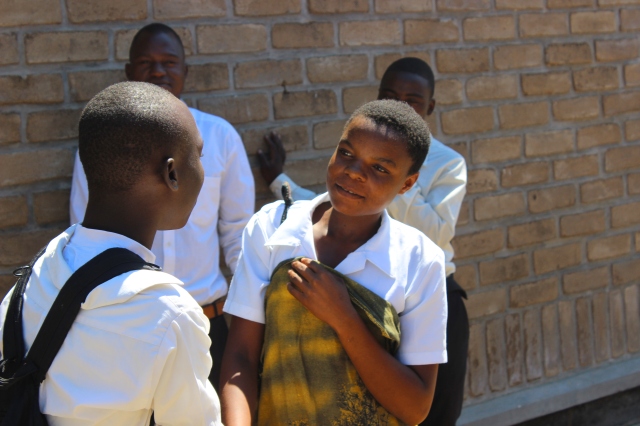
On the day of rehearsals, when I had initially imagined 25 groups performing, we had only four. But the show had to go on. During the performances, the teachers critiqued the students and gave them advice on how to improve. I felt like Paula Abdul on American Idol because every time I was given the floor, I simply congratulated the students without offering points to improve on. But I was so proud of them! During the rehearsals, a few Form 2 students came by and decided to participate. They ran off behind a building and quickly whipped up a drama. When they came back to perform, they had the whole audience laughing. How exactly they made it up in a mere 10 minutes, I had no idea. I did know that I was thankful to have more submissions! We ended up selecting everyone to perform the following day at the rally.
Phase 5: The rally!
During the course of the past few weeks, I had been inviting people to come to the rally and making sure the location and DJ were secured. I created posters that I hung in the market, in the health center and on various trees. In addition, I had plans to be a “night crier,” or someone who rides their bike through the village at night with a megaphone announcing a program. However, I could simply not find my counterpart. The past week, he had gone missing and his phone was broken. (I found out later that people had been stealing his corn so he had to harvest it fast. He had been working all day, from 5am- 7pm and then returning to the fields at night to stand guard against thieves). For these reasons, night crying didn’t happen. I also advertised at the primary school, telling the teachers to disseminate the information to their pupils and for the pupils to tell their families. I was expected a huge crowd, considering that Maganga has a population of 40,000!
By 2:00 the day of the rally, only a handful of dirty iwes had shown up, attracted to the DJ’s music. He had started playing around 1:00 which I was sure to gather people but it didn’t seem to be working. Even the secondary students were late! They were supposed to come directly after school at 2:00 but the first ones to show up weren’t there until 2:45. The headteacher told me that there was an all-school meeting with an NGO (which he had promised to postpone but clearly didn’t), so that’s why they were late. Thanks for the continued support, I thought. By 3:00, two hours after the advertised start time, we still hadn’t begun. I worried that the petrol fueling the speakers would be depleted before we even started. I also started to believe that it would be a complete flop.
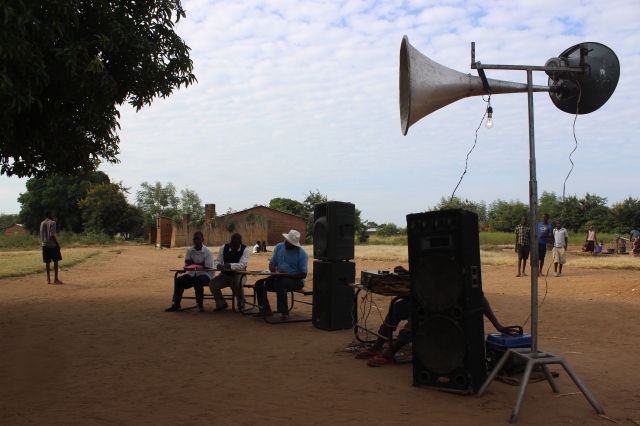
Finally, even though the audience was quite skimpy, we decided to get the show on the road. The biology teacher was our MC, and he did a great job of engaging the audience and making it fun. We had a representative from the health center talk about the impact of malaria on the community. He shared, among other things, that in 2015 there were 16,000+ confirmed cases of malaria in Maganga! Staggering. The headteacher then spoke on the impact that malaria has on a child’s education, discussing school absenteeism and developmental issues from the disease. I also gave a speech in Chichewa on why I have chosen to focus on malaria and how pervasive it is in all aspects of life. The students absolutely loved it and gave me a huge applause for my silly Chichewa. After these speeches, the performances began. We managed to scrounge up seven or eight in total, which I was content with. While I couldn’t understand most of the fast-speech in the songs and dramas, I could tell that they were well received by the audience.
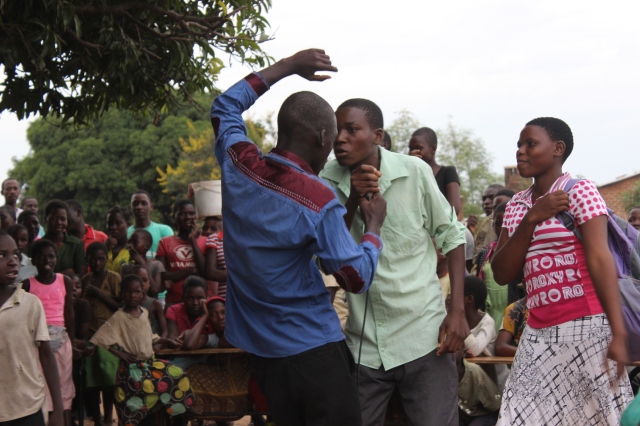
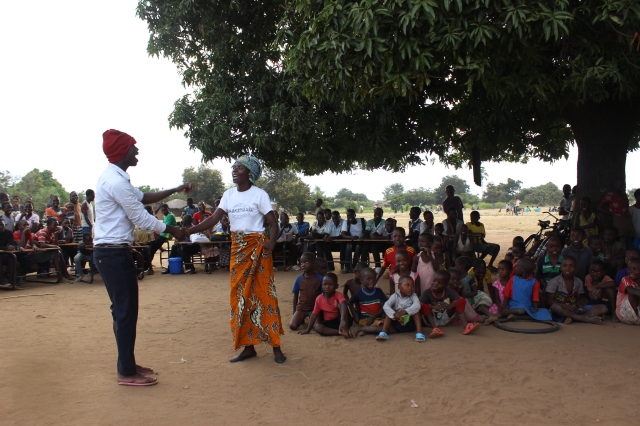
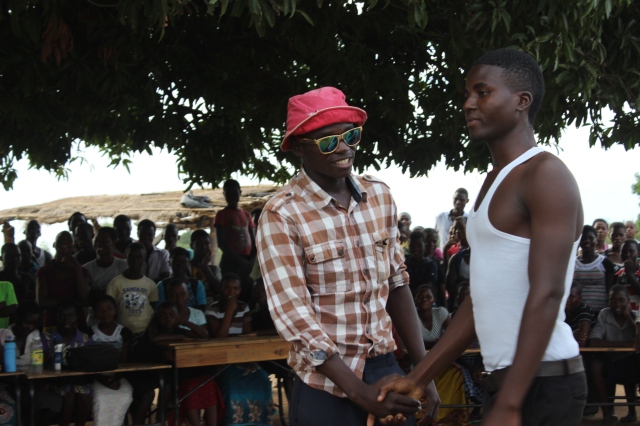
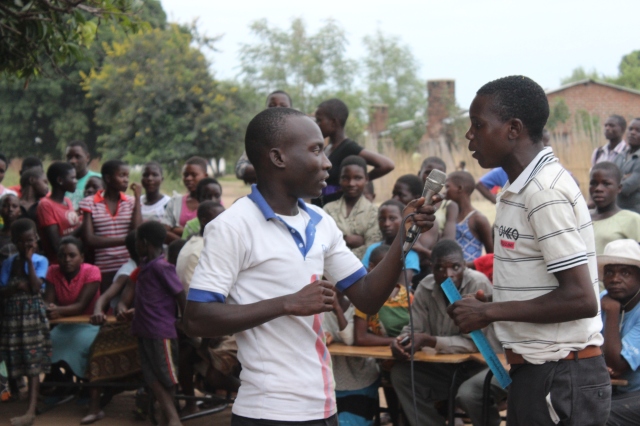

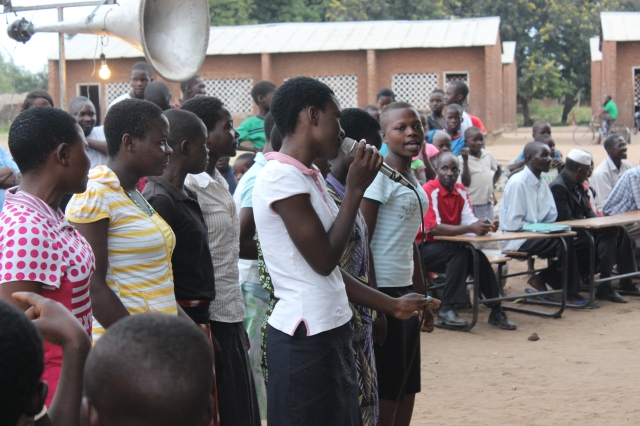
As the rally continued, my counterpart gave a bed net washing demonstration, the MC invited the village chiefs and I up to dance and the crowd grew. Every half hour or so, the headteacher would lean over and whisper something like
“See? People have come.” Or, “There are no adults here but they already know about malaria. It’s only the children we need to target.”
While his comments were a tiny bit reassuring, I could tell he was just trying to make everything seem okay after all of the obstacles he had thrown at me. Still, I was content. By the end of the rally, I estimated that 400-600 people were in attendance.
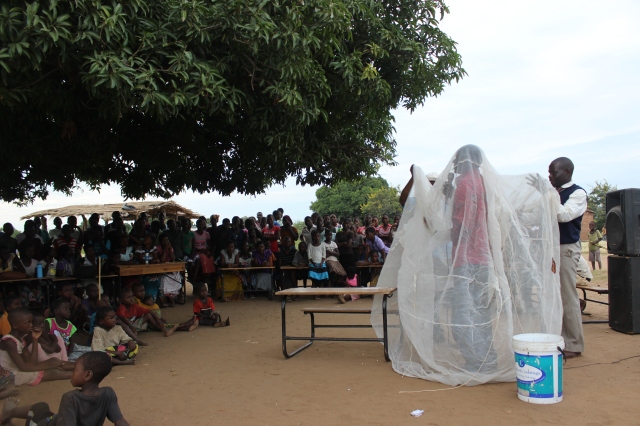
When all the performances were finished, we awarded prizes to 1st , 2nd, and 3rd places. Part of the first place prize was a glazed banana bread, cooked by yours truly. The winning group held it up above their heads and danced in celebration. It was pretty funny. Although the project was not what I envisioned, I was happy. All of the audience members we surveyed reported that they indeed had learned something- from how important it is to take malaria serious, to how to wash a bed net. I was appeased to also hear that the chief had approached the biology teacher a few days later and told him how much he appreciated the rally. He promised that he would make an effort to persuade people to use their bed nets properly. Furthermore, the teacher also told me that one of the students went up to him and told him that before the project, he didn’t really consider malaria to be a problem. Now, he said, he appreciates how truly harmful the disease is to society and considers it a huge risk. Hearing things like certainly made the project seem worth it, despite the stress it had brought. Tomorrow, I will be giving the post-test to the secondary students and am excited to see how well their scores compare to the pre-test!

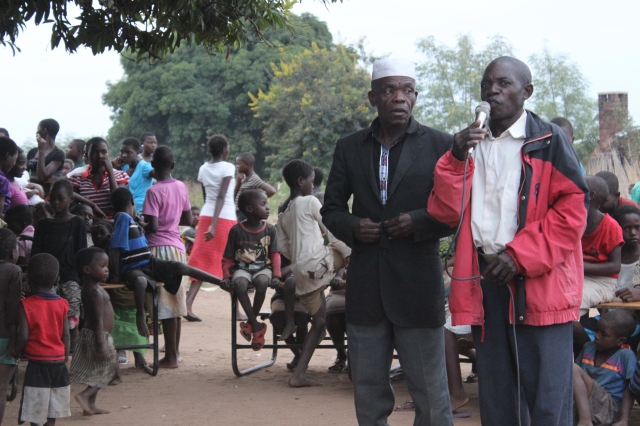
Future PCV’s please comment if you have any questions! Hope you found this somewhat helpful.
1). How to prevent your boyfriend/husband from cheating/taking a second wife:
I haven’t figured out all the details on this one but I know with certainty that it requires the tail of a lizard. This morning, my friend plaintively confided in me that her husband had decided to take a second wife. Shortly after, she whacked a lizard that had been listening nearby. While the meat of the lizard managed to escape, its tail remained behind. Without hesitation, my friend picked up the still appendage, wrapped it in a piece of plastic and put it in her purse. After seeing my bewilderment, she explained, “I’m bringing this to the msing’ana (traditional healer). He’ll make a lizard tail medicine out of it that will bring my family back together.” What exactly is in that concoction, I’m not sure. What I do know is that if you’re having boyfriend troubles, you best be lizard huntin’.

This guy better watch his back if any other other of my friend’s husband decide to stray…
2). How to make your baby stop pooping green mush:
Don’t worry, you don’t have to make any changes in your baby’s diet or even bring the babe to the health center! There is a much easier, surefire fix. Simply string a long necklace with green beads and place it around your baby’s waist, right above their diaper. Wait only a few days, weeks or months and wa-la! The green poo will become normal-colored again.
3). How to assure your child will have a normal shaped head:
This one is VERY important. Failure to abide by the following directions will leave your child with a grotesquely misshapen head. An alien head, if you will. You don’t want him/her to be the laughing stock of the entire village, do you?! To prevent this calamity, simply buy a head-shaper necklace from the traditional healer. It has tan, penne-shaped beads and should be worn by your baby for the first two years of his or her life. Make sure that no matter how much of a strangulation or choking hazard it is, that your baby does not remove the necklace!
4). How to assure your papaya tree will produce fruit:
Enough about babies. This one is about that sweet, orange fruit that can grow the size of your head. For all the non-botanists reading this, I’ll preempt the instructions by informing you that not all fruit trees produce fruit. I learned recently that trees can be male, female or even hermaphroditic and that (at least for papaya), you can’t differentiate sexes while the trees are still seedlings. Therefore, this how-to is essential if you find yourself with a lame male plant that just stands around all day (hmm sounds similar to male humans here). Anyways, for this reason it’s extremely important to take matters into your own hands so that your tree will produce! To do so, find a shucked ear of corn. Using a torn plastic bag or other debris, tie the corn vertically to the trunk of your papaya tree. In no time at all, it’ll be producing that sweet, juicy fruit and you can credit yourself with its sexual transformation!
I hope you have enjoyed these useful How-To’s and that I’ve imparted some wisdom on you! I owe it to my neighbors who have taught me all of these tricks over the course of the past year.
My next post will be about World Malaria Month and what a typical project might look like for a Peace Corps Volunteer. I’ll be uploading pictures, videos and a detailed account of how it all went down. Stay tuned!
Zooming along the back of a bike taxi with the wind in my hair and the verdant countryside sprawled out in front of me, I was in bliss. Memories of my homestay family, who I had not seen in a year, permeated my mind. I was en route to their village to surprise them with an Easter visit from their long lost American daughter. The weekend prior, I was forced to cancel plans with them but today was the real deal. I planned to relish in the glory of being a “back home baller,” gleefully accepting heated bucket baths and fresh mandasis. I’d play with my brothers and sisters and give them the school supplies I’d brought as gifts. I would tell my amayi everything that I could about life in Salima with my improved Chichewa. A grin spread across my face as the long overdue reunion played out in my head.
As I neared Chisazima, people began to recognize me. Some waved and called out my name, while others just stared and quietly whispered my name in disbelief. Great excitement roiled inside me.
When I finally arrived in the village’s little trading center, I was ambushed. “Christina! Christina! Christina!” A woman flung her arms around me and gave me an awkward albeit loving hug. It was my Malawian friend Anne, who had lived next door to my host family. She eagerly grabbed one of my bags and led me towards my family while probing about lakeshore life. After chatting for a bit, I asked her about Tilifonia, my host mother.
“Alibe,” she said. “She’s not here.”
My heart sank. She’s not here? Maybe she’s out in the fields, I reasoned optimistically. As a gaggle of children led me into my family compound it became clear that not only Tilifonia, but my entire host family, was indeed absent. No sweet little Madalitso in her tattered peach dress. No playful Nduza dribbling around his homemade soccer ball. No amayi eagerly awaiting my arrival.
The house where I had stayed had changed too. Gone was the hand-washing station that my family built to appease Peace Corps, gone was the door on my bedroom and gone was the improved cook stove that they utilized during my stay. The house was dilapidated, its straw roofing sliding off and its paint weathered. I knew things would be different a year later, but everything felt so unapologetically cold.
Currently inhabiting the house were my amayi’s sister and two children, who I had met once or twice during homestay when they had come to visit from town. They were of course elated to see me and welcomed me into their home in true Malawian fashion. I was served tea and bread as we chatted shyly in Chichewa. It was then that they told me that my family had moved to another district months ago. My amayi was planning on taking a bus to Chisazima if I came to visit, they explained. However, the combination of my surprise and my sister currently being sick with malaria made it so she would not be able to come. A true sadness washed over me. While my vocabulary and Chichewa speaking skills had expanded considerably since PST, the conversations that we had were still only surface deep. I attempted to disguise my disquietude, explaining some of my projects and chiding the heat of Salima district, but many awkward silences ensued.
That night I was served an indomitable pile of nsima but to my disappointment, there was no mention of the fresh mandasis that I envisioned. While the little donut-like snacks are as prevalent as American flags on the Fourth of July, the act of cooking them with my amayi used to be one of my favorite pastimes. I cherished dearly the time spent around the fire with my Malawian family. We would do our best to make conversation, we would laugh at the inevitable miscommunications, and we would stare up at the night sky. Now, the mandasi-less night was only a poignant reminder of the year that had passed.
I retreated to bed shortly after finishing dinner. However, instead of retiring to my comfortable Peace Corps issued mattress and sturdy mosquito net, I was given a reed mat and a thin sheet to sleep with. Trying my best to fall asleep, I thought about the day’s events. There I was, sleeping in a near-stranger’s house in a tiny village somewhere in Africa surrounded by a language and culture strikingly different from my own. While it’s true that I have been living alone in a small village for over a year now, it seemed surreal to me. Perhaps because there was no real reason for me to be there. Yes, I lived in Chisazima last year with other volunteers and yes, I had found family there, but both were now gone. I didn’t have my American friends, the Peace Corps staff, my counterparts, my homestay family or anyone that even spoke English- let alone cell phone service. I felt vulnerable and small. A tiny speck on the Earth’s grand surface.
Yet, as I considered my delicate position, I realized that I wasn’t as alone as I seemed to be. That day, as word spread of my presence, more than a dozen people trickled in to welcome me back and say hello. Each person that came to greet me was effusive with joy, shaking my hand heartily as their eyes sparkled with excitement. The kids who I used to play with recited the Macarena that I had taught them a year ago and my host mother’s elderly parents joined us for a meal. The day was certainly spotted with awkwardness and uncomfortableness, but it served as a strong reminder of Malawian hospitality and notions of family. My kin had taken me in as one of their own, adjusting their schedule to make sure that I was fed, bathed, entertained, and housed properly. It didn’t matter that I showed up unannounced or that it was Easter- only that we were family.
The second thing that I reflected on that night was my recently acquired predilection for uncomfortable situations. While my tall & awkward highschool self wouldn’t buy it, I realized that awkward situations no longer fill me with consternation. Chatting amongst women with their boobs carelessly flopped out of their shirts? Simple. Sitting in silence in a neighbor’s home while everyone in the family stares at you? Cakewalk. Waiting for a meeting to commence in a classroom with two shy kids for an hour? Easy-peazy. Thinking back, I realized that a great proportion of my experiences here in Malawi have been uncomfortable and/or awkward. Yet, I’ve come to embrace them. While my visit to Chisazima wasn’t as romantic an adventure as say, climbing a new mountain with friends, I still considered it a valid undertaking. A small feat in exploring the unknown and stepping outside my comfort zone. Although I yearned for my amayi, the unique experience led me to once again appreciate Malawian families and embrace vulnerability.
The back of my couch regrettably leans forward, causing whoever sits in it to morph into a hunchback. Its cushions are thin and misshaped and its wooden arms boast a multitude of sharp edges existing with the sole purpose to dig into your back. The couch is only two cushions wide, too short to stretch your legs out or even curl up on your side. Out of all of the sitting positions I have attempted, none have proved even slightly comfortable.
Yet, as I plopped down today, I was without grievances. Hunched awkwardly with the slats riding into my butt bones, I was one hundred percent content. Why? Because I had just received a package from two old friends that contained, among other things, a Clif Bar. I hadn’t tasted one in over a year and just looking at the wrapper made my mouth water. Oats. Coconut. Chocolate. Oh my!
The past week or so I had been eating modestly. I’d mostly been cooking with greens that I gather from around my house, eating them with white rice. I hadn’t baked any breads or indulged in spaghetti or even purchased a tasty coke in what seemed like awhile. In addition, I hadn’t received a care package in the past month, so my cravings for any type of goodies, (especially American goodies), was overwhelming. Just before a waterfall of drool fell on my lap, I ripped open the Clif Bar, simultaneously feeling a burning sensation on my arm. Had I been poked by a not-yet-discovered deformity of the couch? The burning sensation turned to an itch so I put down the drool inducing Clif Bar and started scratching. I really went at it, not caring if pieces of skin ended up under my fingernails. Looking down at my arm, I saw that the source of the itch was white and bubbly while it’s surroundings appeared raw and red in color. Not dissimilar from an uncooked Boboli pizza. I scratched further up towards my shoulder and the bubbles spread. I scratched my elbow and they appeared there too. Finally, after gaining some self control, I stopped clawing at myself and went outside to test if pouring water over the irritation would alleviate the uncomfortableness. Nope.
There was nothing for me to do except wait it out, I thought. I’ll just have to take refuge within the chocolatey deliciousness of my Clif Bar and wait for the itching to subside. Retreating inside, I saw something shiny in the corner. No. I took a step closer. No. I made out the word “chocolate” flipped upside down. No no no! There was my prized treat! Or there wasn’t my prized treat, apparently fully enjoyed by someone other than myself, violated and cast aside like a forgotten Barbie doll. I was completely crushed.
While I of course fully suspected Rajah (my pup) as the thief and destroyer of my bliss, my suspicions were undoubtedly confirmed a few hours later as I laid in bed. By then, I was still mourning the loss of my Clif Bar. I was also still itching. I tried not to do so, but that seemed beyond my capabilities. As I laid there wrestling with my mind, I was suddenly jolted awake by a wretched noise. A retching noise. I scrambled to locate my headlight and shine it on the floor, but the smell hit me before the situation was fully illuminated.
Yes, Rajah had puked. But not on my easy-to-clean cement floor. Instead, he spewed through my malaria protecting bed net and all over my toiletries. The vomit splashed my bed frame and then seeped into my woven mat. The vomit. Rajah’s vomit. Rajah’s vomit made up of my Clif Bar. He probably didn’t even enjoy eating it- as it happened in a matter of mere seconds- and I’m sure he didn’t enjoy it coming back up. The particularly disgusting smell of the half-digested Clif Bar spread, causing the hot, humid climate of my bedroom be fully saturated with the stench of vomit. My arm itched intensely. I wanted to sleep. But alas, this is Peace Corps.
I’m sitting cross-legged on the floor of a dingy, fluorescent-lit room. The walls, once screaming with hot pink paint, are now muffled by dirt, cobwebs, and crumbling plaster. Behind me is a line of empty chairs, all facing a long dirty mirror, beckoning to be sat in. In the corner lean six dilapidated hair dryers- the kind you would imagine old ladies with giant curlers to be sitting under in a vintage American sitcom. Back on the floor, my shoulders are squeezed inwards by two strong Malawian thighs. A sharp pain is felt on the top of my head and a trickle of sweat and dirt runs down my arm.
While the bleak description above betrays a sense of unpleasantness, I am more than content. In fact, I feel somewhat at home. The hot pink paint reminds me of my best friend’s sparkling pink walls circa 2008, where we’d spend hours listening to music, talking, and just being teenage girls. Yet, I wasn’t back in middle school; I was in a Malawian salon.
An hour earlier, after inquiring about a display of hair mesh in a women’s clothing shop, I was led through a back door that opened up to the serendipitous room where I now sit. There are four other women here, who oscillate between gossiping rapidly, griping about the heat, and chatting with me as someone braids my hair. Although I can comprehend only a fraction of their banter, I somehow feel like one of the girls. I feel oddly connected to this unexpected group of women who wear modern clothes, speak some English and understand customer service. Although they were initially surprised to see a white woman enter the salon, the women are giving me space and allowing me to peacefully indulge in the old, familiar world of girliness. Yes, I think I’ve found a new form of stress-relief. #WackyHairDaysHereICome
PS. Soon I’ll be posting pics from my Modern Malawian group’s graduation party. Stay tuned!
When I was still undergoing training in Kasungu in April 2015, an established PCV gave to me a note with the following quote:
“Adventure is a path. Real adventure – self-determined, self-motivated, often risky – forces you to have firsthand encounters with the world. The world the way it is, not the way you imagine it. Your body will collide with the earth and you will bear witness. In this way you will be compelled to grapple with the limitless kindness and bottomless cruelty of humankind – and perhaps realize that you yourself are capable of both. This will change you. Nothing will ever again be black-and-white.” -Mark Jenikins
I remember reading the quote and rendering it a bit too abstract, too verbose and airy for my liking. I jammed the note into my backpack and thought nothing of it for the following months. Now, almost a year in country, no string of sentences has been more true.
The quote begins describing adventure. It’s self-determined, it’s self-motivated and it’s risky. Reflecting on my own self-motivated adventure in Malawi, I can agree that it has indeed been a risk. Everyday I risk my sanity, my physical health, my future (was this the right choice?), and my long-distance friendships, among other things. Living alone in a community whose values are severely different from mine, (see post: Love, Sex, and Cultural Imposition), and not having anyone nearby to decompress with on a deeper level is a risk. Tending to multiple intractable but minor health issues that I’d never experience in the States is a risk. Running through tall fields of corn in the early morning is also a risk. Yet, as Jenkins writes, this life — albeit risky — allows me to encounter the world first-hand. If I didn’t shelter the elderly woman in my house when the grisly Gule Wamkulu passed by, I wouldn’t have absorbed her visceral fear. If I didn’t stop to watch the younger boys play soccer and dubiously attempt to chat on the sidelines, I wouldn’t have understood their routine struggle in finding materials to make a ball. Lastly, if I didn’t accept an invite to eat nsima with a stranger, I would never have become friends with someone who I now thoroughly trust. Only by making myself vulnerable and taking these risks have I been able to encounter the world up-close.
Furthermore, these self-determined risks have allowed me to see the world the “way it is, not the way [I] imagined it.” Africa is not a homogenous continent filled with starving, fly-covered children in barren landscapes as often depicted by the media. Some of my neighbors have electricity and text on blackberry phones while others sport converses and listen to Akon. My village is also not composed only of warm, generous and hardworking individuals striving for change. My neighbors chide their female children for continuing their education when they should be producing babies. Everyone locks up their homes when they leave for the farm in legitimate fear of thieves.
No, there is no black and white.
I have indeed been “compelled to grapple with the limitless kindness and bottomless cruelty of humankind.” I remember moving into my new house and a woman offering a whole basin of tomatoes to me. While the gesture was certainly appreciated at the time, I have since learned that this woman lives in one of the smallest huts in my village (smaller than my bedroom back home), and recently married off her daughter for monetary reasons. Yet, there she was, presenting me with her tomatoes that she could have been selling for profit. On the other hand, I’ve watched both next-door neighbors (to my left and right) brutally beat their children, repeatedly landing blows to their little munchkins’ heads with as much force as the women could have mustered. I’ve also talked to many men at local tearooms/restaurants who explained that they are were “running away” from their families because there was no food at the house and they wanted something to eat for themselves.
As Jenkins writes, this dichotomy between kindness and cruelty is not only observed externally, but may also be realized in yourself. I too, have been stretched to both ends of the spectrum. Some days, I am overcome with magnanimous love for my little friends who will most certainly live the same, difficult lives that their parents do. I flood them with the attention that they never receive — reading to them, helping them write letters and sounds in my notebook, and plopping stickers on their sweet faces. I give them pencils, let them play with my soccer ball and teach them songs. Sometimes I bake delicious goods and — although I know that the homey, comforting feeling that banana bread concocts for me is not recognized in Malawians — I share my coveted, idolized treats. On other days, this grand adventure transforms me into a cruel monster. In the beginning of my service, throngs of children would come to my house to look in my windows, scream my name, and mock me. During those days, I certainly had dark, execrable thoughts. I had to restrain myself to not use violence, (the only form of effective punishment that I’ve seen children respond to here), and instead communicate in vain with my severely limited Chichewa. On other bad days, I’ve exhibited my cruelty by insolently cruising by people trying to flag me down, rolling my eyes and cursing out loud at their irritating attempts to have a baseless conversation with the azungu just so they could brag to their friends. Yes, even as a spreader of peace, I have have taken the low road.
On this path of adventure, I have both bore witness to & exhibited myself bottomless cruelty and limitless kindness. I have truly encountered the world first-hand. This, according to Jenkins, will change me. Already, I’ve seen the world shift. My views are more complex. My understanding is more profound. I am more grateful. As my body continues to collide with the earth, and as I continue to follow this path of adventure, I await with eagerness the lessons that rest on the horizon in front of me.
Ichi!
Hop.
Icho!
Hop.
Ichi!
Hop.
Icho!
Hop.
Three little girls pranced through my yard, hoping from one tuft of greenery to the next like giant grasshoppers. Between each hop, they bent over and plucked out a small green plant. “This one!” They exclaimed, “That one! This one! That one!” The three girls were teaching me how to find okra. Only three or four inches high, the okra pods had not yet developed but the leaves were present. “Chiri, these leaves make a great relish,” they told me. “With nsima, it’s delicious.”
Upon collecting a few handfuls of the plants, we sat on my front porch. I fetched a bowl and we began removing the leaves from the stems. First, they said, you must take a clump and smack in on your palm to remove the dirt. Only then can you remove the leaves. When I started prepping my pile, one of the girls pulled out a piece and flapped it around in the air. “Chiri! This isn’t okra!” she burst out. The other girls giggled at my in ineptitude. I was amazed at their ability at such young ages (7 or 8 years) to differentiate between two plants which, to me, looked exactly the same.
The next step was cooking. Living without electricity means that I start multiple fires everyday, but yet again my skills were trumped by the girls. Using only one handful of grass, they successfully lit the fire and knew exactly when to fan it, how to blow on it with finesse, and when to just sit back and let it catch. (Since my okra lesson, I have attempted to emulate their fire techniques and have somewhat improved my game).
To cook the “relish” (side dish), they taught me to wait until the water reaches a certain warmness then add the leaves with baking soda. From then on, there was quite a bit of testing to see how it was cooking. One girl would scoop up some water and drip it into her eager friends’ outreached hands. They would then lap up the steaming water and almost every time, decide that the leaves needed more salt. Of course. Later, a minor squabble broke out over when the water should be drained, but after exhaustive testing, they reached a consensus.
We finally drained the green-stained water into another empty pot and let the okra leaves continue to sit over the fire for a few minutes. “Chiri!” One of the girls nudged me and placed into my hands the large pot of piping hot green liquid. “Now we can drink the water!” She said with zeal comparable to that of cheese-starved PCVs scarfing down a pizza. I shrugged and tipped the pot back. The water tasted like salt. Still, the kids loved it and passed around the pot like a bottle of cheap alcohol until it was finished. With my elementary chichewa, novice cooking skills and crude manners, I felt like a kid again. Just one of the iwes learning something new. And it was wonderful.
My teachers. (With of course a handful of observers that snuck into the picture).
What have I done the past month or so?
Went to Zomba Plateau & Cape Mac to celebrate Christmas
Was bitten by a monkey. (This one!)
Celebrated a village birthday with my friend and her family (via a feast complete with cake & spaghetti)
Hung out with Rajah
Painted a little malaria mural in a tearoom with my leftover paint
Experienced a few rainstorms & flooding #rainyseasonproblems
And last but not least, collected a lot of cow poop for my garden.
Cheers to 2015, let’s see what 2016 has in store for me!